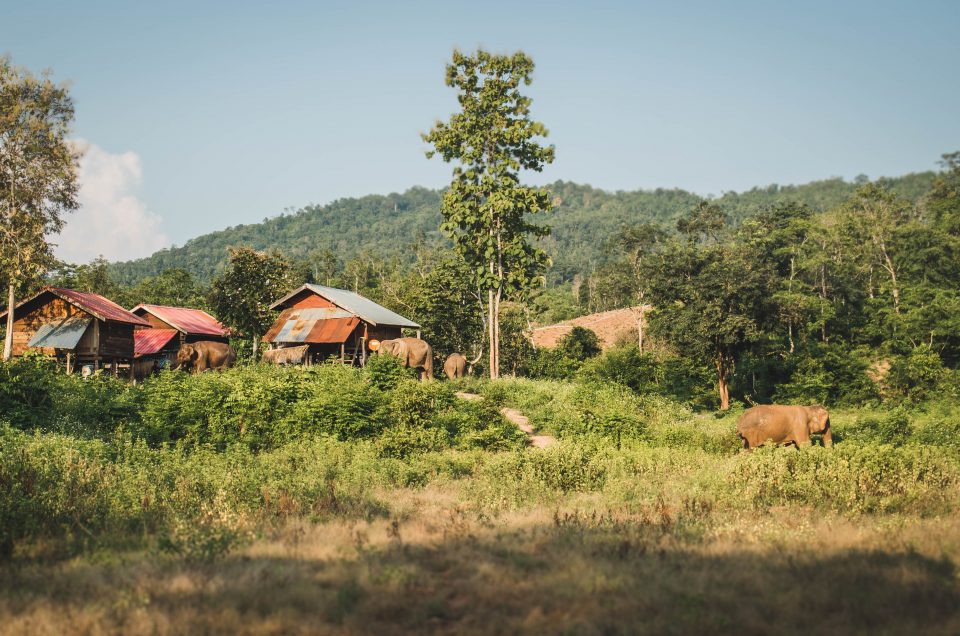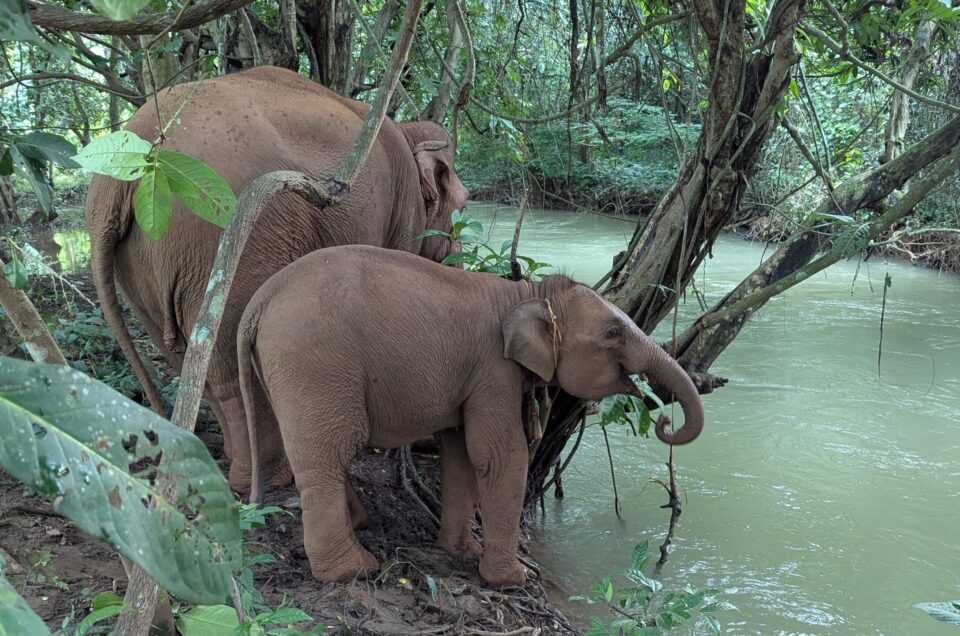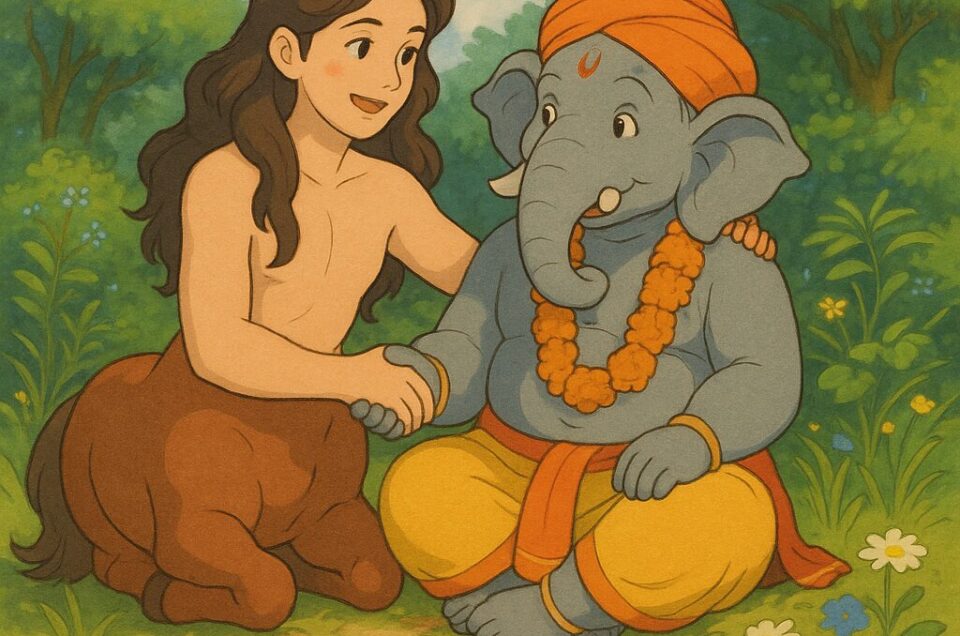Conservation Through Connection, Not Separation
At Manifa Elephant Camp, we practice what is known as convivial conservation—a vision of environmental care that sees people and animals not as separate, but as deeply interdependent. Too often, conservation efforts rely on an outdated binary: wild versus domestic, human-free wilderness versus human impact. In this view, the best way to protect elephants is to remove them from human contact altogether. But in Laos, this logic doesn’t hold.
For generations, elephants have lived in close connection with people. They have worked alongside humans in the forests, participated in rituals and ceremonies, and roamed freely between jungle and village. These aren’t just ecological interactions; they’re social and cultural relationships built on mutual adaptation, local knowledge, and shared history.
Convivial conservation honors these entanglements. It asks not how to isolate elephants, but how to nurture the conditions in which elephants and people can continue to live together well. This includes:
-
Supporting mahouts and their families, whose generational expertise is often overlooked in global conservation policies.
-
Upholding traditional Lao practices that reflect respect for elephant agency, rather than trying to replace them with external standards that may not fit the local context.
-
Building models of care that are place-based and culturally informed, instead of importing one-size-fits-all solutions from the outside.
At Manifa, this means elephants are not “rescued” into static lives of isolation, nor are they commodified as mere attractions. Instead, they live in a dynamic landscape—cared for by experienced mahouts, engaged in appropriate activities, and surrounded by forest and community. We don’t treat conservation as a fence that separates, but as a web that connects.
This is also about justice. Too many conservation programs displace local people in the name of wildlife protection, turning them into bystanders—or worse, into problems to be managed. Convivial conservation resists this. It recognizes that local communities must be part of the solution, and that their livelihoods, cultures, and dignity matter too.
We believe true conservation doesn’t just aim for survival—it aims for flourishing. Flourishing elephants, yes—but also flourishing people, landscapes, and traditions. At Manifa, conservation is not a museum display. It is a living, evolving relationship that we tend every day.
In this vision, elephants are not only symbols of nature, but participants in a shared future. And that future, if we are to create it, will be convivial—co-created, co-inhabited, and co-sustained.





![[1] Q: Are Elephants in Tourism Wild or Domesticated?](https://manifatravel.com/wp-content/uploads/2023/03/elephant-vet4-780x636.jpg)

